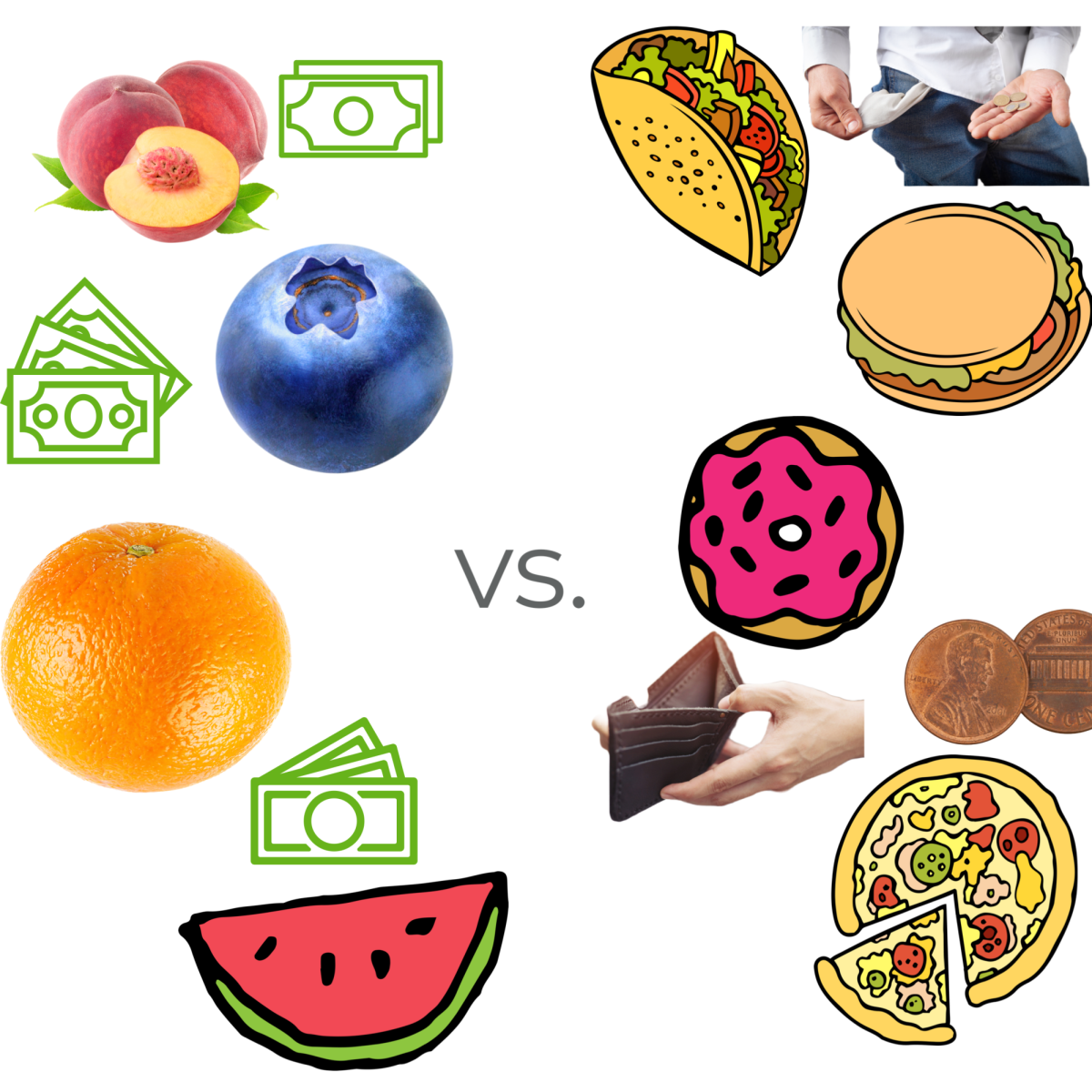BY CARSTEN SAVAGE (’17)
When someone walks into a grocery store, he or she may notice that even though some produce is labeled organic, it looks identical to its non-organic counterparts but for a higher price; this cost difference may be more than reason enough for the unsuspecting consumer to save money and pick the cheaper food.
However, members of the school community believe there are reasons to choose produce grown naturally over its non-organic– and often genetically modified— counterpart.
While studies have not shown that genetically modified foods, or GMOs as they are abbreviated, are consistently harmful to humans, people often prefer organic produce, nevertheless.
Freshman Charles Ziegert said that he would deliberately choose an organic food over its genetically modified version.
“GMOs are too different than real food,” Ziegert said.
Scott Sharp, another freshman, was of the same opinion.
“It costs more, so it has to be better, right?” he remarked.
According to Jennifer Newell, one of two Biology teachers at the school, a person should consider many factors when deciding whether to eat organic or genetically modified foods. She made it clear, however, that there is no hero-villain relationship between the two.
“Since genetic modification is transplanting genes between species, you could create a drought-resistant plant,” Newell said. “There is a lot of potential.”
To Newell, it may take some time before farmers and researchers discover how to better create and grow GMOs so that the organisms have less of an environmental impact.
“Organic foods are better for the environment and the ecosystem as a whole,” Newell said. “Organic crops have no need for synthetic fertilizers and weed killers, and they are not monocropping.”
Monocropping, a farm practice in which vast land is densely populated by one crop, is often done in order to maximize profits. Newell believes it does a farm more harm than good.
“GMOs are monocropping, and that makes them especially susceptible to diseases,” Newell said.
Newell said that monocropping is not good for soil health. She described a cycle in which monocropping damaged the soil, and that damage depleted the minerals, resulting in a need for more watering.
She pointed out that farmers who grow genetically modified foods are more likely to use more pesticides than they actually need to use for the amount of crops they grow.
“We are driving the evolution of weeds,” she said. “Eventually, using more pesticides will make the weeds resistant.”
Newell said that unlike GMOs, pesticides have “been shown to have negative health consequences on humans.”
Even if a person avoids pesticides by only eating organically, she explained, he or she can still have contact with them; pesticides run off into groundwater and are carried in rain.
Newell affirmed that she has made the decision for herself.
“I try to buy organic foods,” she said. “They’re going to be higher quality and environmentally sustainable.”








